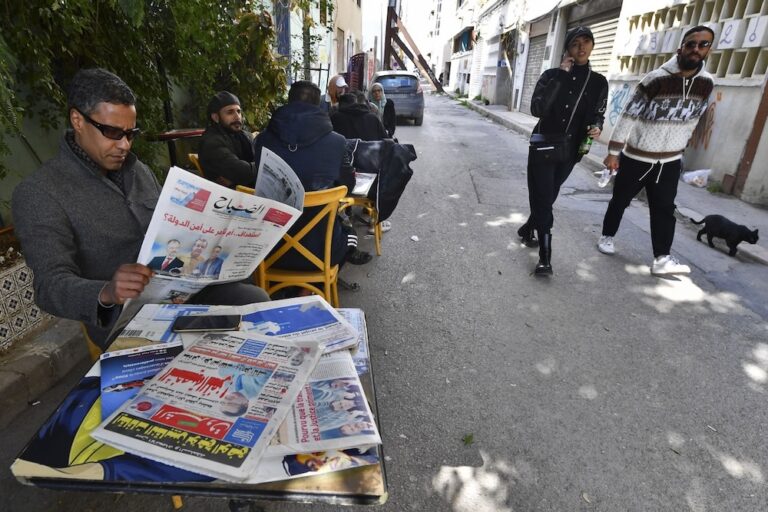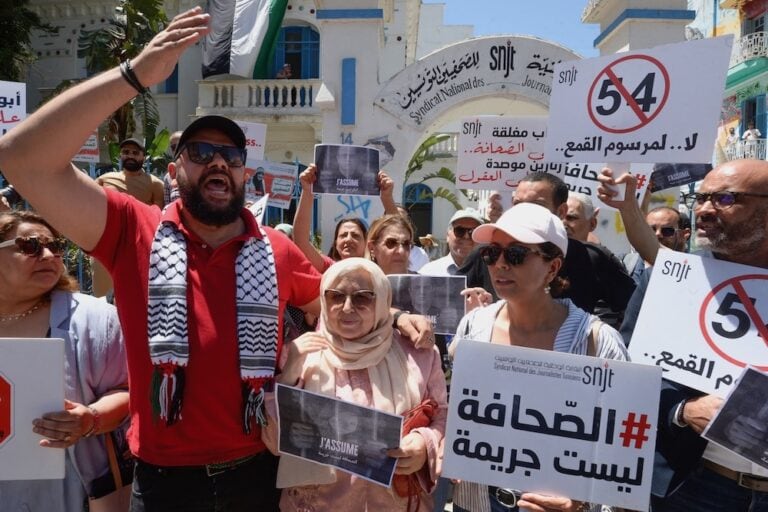RSF travelled to Tunis to verify media coverage of the campaign and opposition parties' access to public media outlets.
(RSF/IFEX) – 23 October 2009 – Tunisians go to the polls on Sunday 25 October to elect a president and renew the National Assembly. The result of the election is not in doubt. The sole question is by what percentage Zine el-Abidine Ben Ali will be re-elected.
As the monthly Afrique-Asie headlined its special issue of October 2009 “Tunisia, why it works”, Reporters Without Borders, including its secretary general Jean-François Julliard, went to Tunis on 12-15 October to observe how the media, particularly those linked to the opposition, manage to cover the campaign as well as to check the access of some opposition parties to the public media.
“Pluralism in news is still not a reality in Tunisia. It is unfortunately particularly true in an election campaign. President Ben Ali is splashed on the front pages of newspapers that are tireless in his praise. The columns of the state-run and pro-government newspapers are brimming with messages of congratulations and support for the candidate-president. The same goes for television and radio. Unfavourable opinions of the head of state are largely absent from media and Tunisians do not have access to balanced news and information”, said Jean-François Julliard, secretary general of Reporters Without Borders on his return from a fact-finding visit to Tunis.
“We also condemn the attitude of the Tunisian authorities who prevent Tunisian journalists and foreign correspondents from doing their work. The police presence is permanent during this electoral period. Opposition activists, independent journalists, human rights defenders and pro-democracy activists are closely watched. This state of affairs is unacceptable,” the organisation added.


